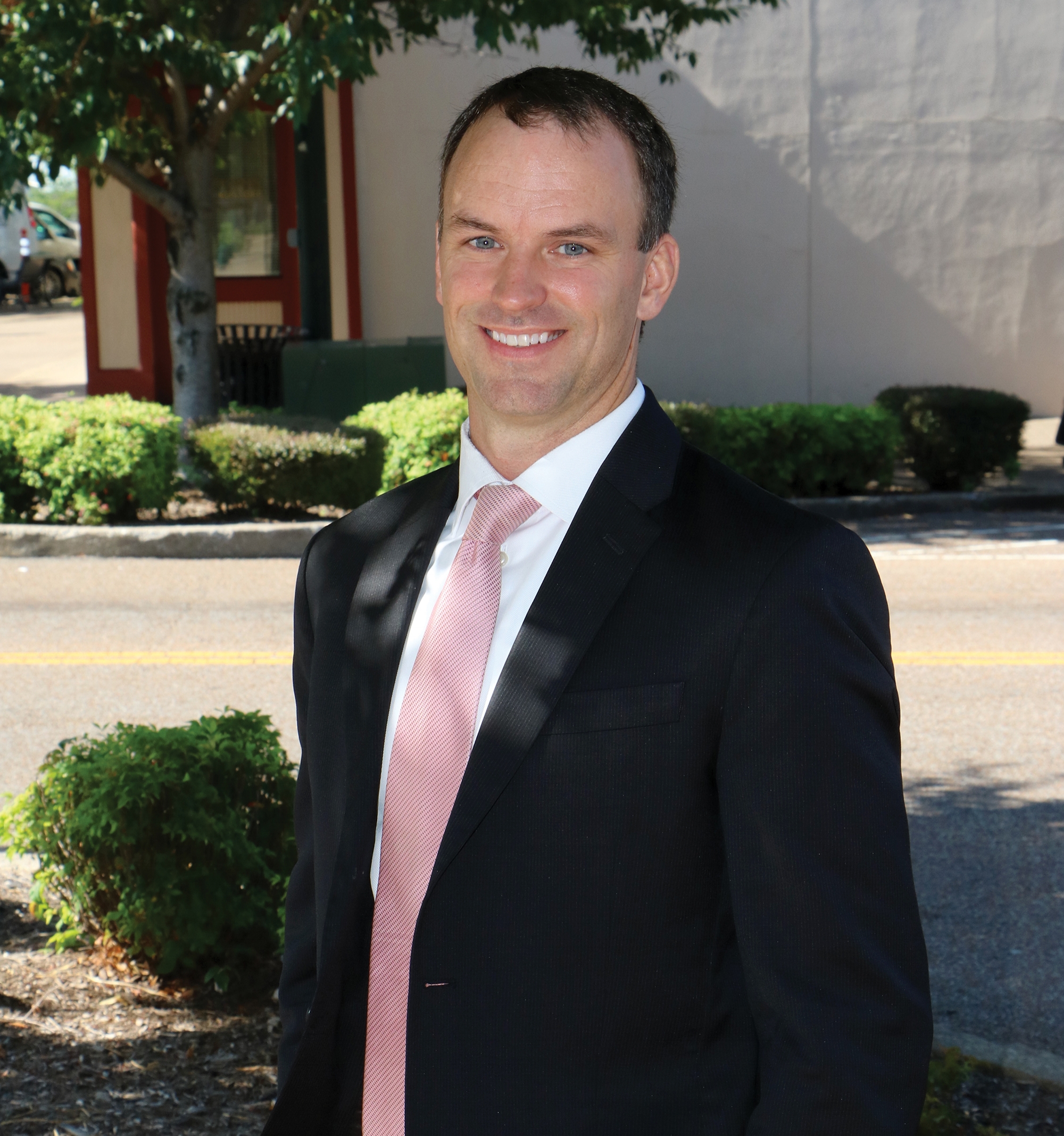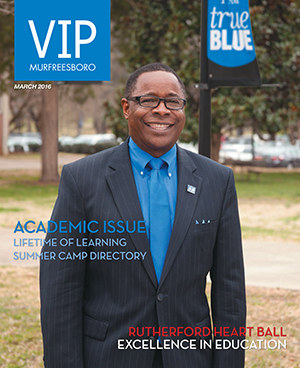VIProfile: Dustin Summers
/Executive Director of the West Tennessee Physicians Alliance and West Tennessee Primary Care
Story by Lyda Kay Ferree, The Southern Lifestyles Lady. Photography by Woody Woodard.
Dustin Summers
Dustin Summers serves as the Executive Director of the West Tennessee Physicians Alliance (WTPA) and West Tennessee Primary Care—independent physicians’ associations collectively representing over 200 health care providers throughout the region. Summers also serves as the CEO of West Tennessee Clinical Partners, a CMS designated Medicare Shared Savings Program.
Summers is a native of Paris, TN and a graduate of the University of Tennessee-Martin. He also holds a Master’s Degree in Education from Lipscomb University in Nashville, Tennessee and an additional Master’s Degree in Public Health with an emphasis on Global Health from George Washington University. He is currently completing a Graduate Certificate in Public Administration from the University of Virginia.
Locally, Summers serves as the chairman of the Madison County Young Republicans and he is vice chairman of the Jackson Symphony. He is a member of the Jackson Chamber of Commerce Board of Directors and was a member of The Jackson Sun’s inaugural “Forty Under 40” class in 2014.
VIP: When was the West Tennessee Physicians Alliance (WTPA) established and why? What are its objectives?
Dustin Summers: The WPTA has been around in some form for about the last 30 years. It was initially established to represent and advocate on behalf of small independent practices that consist of 1-4 doctors and their nursing, clinical and administrative staff to give them a larger, more amplified voice in terms of negotiating with insurance companies, health care and hospital groups. It functions almost like a collective bargaining body. Over the course of 30 years the membership has grown to about 110 doctors and about 33 clinics primarily located in Jackson and Madison County.
By and large, the doctors provide specialty care—from rheumatologists to urologists and allergists to two primary care doctors. There are 25 medical specialties working in medical practices in West Tennessee.
The primary function of the WTPA is to serve small, independent medical practices and allow them a mechanism through which to negotiate insurance contracts and be represented in a collective manner. The WTPA offers marketing opportunities, community engagement opportunities, continuing medical education and some health care policy analysis. Website: www.wtpa.com.
Summers was chosen for this job in March of 2014 succeeding Tom Reed, who retired.
VIP: Are there membership fees? Who may join the WTPA?
DS: There is a membership structure and we have an annual fee-based membership. Independent providers or clinics are eligible to apply for membership and our current members met and signed off on these. Our focus is to have high quality care providers in West Tennessee as our members—the ones who provide the most efficient care for our population.
If you’re an independent provider or not part of a hospital system you are eligible to apply for membership. At that point, the current members will review the CVs and their clinical reputation. The WTPA is currently limited to West Tennessee. We primarily function from river to river with the exception of Memphis.
VIP: How many counties are served by the WTPA?
DS: We serve patients from across every county in West Tennessee. We are mainly centered in Jackson and Madison County. A separate entity called West Tennessee Primary Care, of which I am also Executive Director, has primary care providers in about 20 counties of West Tennessee.
VIP: What do you plan to do with your Graduate Certificate in Public Administration from the University of Virginia? Are you getting that degree online?
DS: Yes, it’s an online program at the University of Virginia. I did that because there is so much in the public administration world that has to do with budgeting. I like to squeeze as many dollars as possible of what we are doing operationally at WTPA. Instead of pursuing an MBA this is more in line with what I have done in the past and it might be worthwhile in the future. It helps me understand the constraints of some with whom I deal in the health care world and in the health care policy world.
VIP: Do you travel frequently with this job? What do you do when visiting various counties?
DS: Yes, I do. When I make site visits I check in with the administrators and physicians to assist in any way I can with problems they may be having with insurance companies and keep them apprised of changes in healthcare policy from Nashville or Washington, D.C. A portion of my role as executive director is to translate policies as they change or to translate state-based health initiatives that may or may not have a direct impact on our practices. It is not uncommon for any of our doctors to hear something and think it will have a drastic impact on their practice when in reality it will not. Sometimes things that will affect them go unnoticed like quality reporting. We want to make sure that our practices know what’s coming and what is expected of them and that they know about administrative hurdles so that they may focus on practicing medicine. The WTPA allows doctors to spend more time with the patients as we handle the business end of complex insurance matters.
VIP: What are the chief duties of the Executive Director of the WTPA?
DS: My duties range from calling various state or national Congressional offices to scheduling lunches for our administrators where we can get together and talk about marketing ideas. The organization functions as a trouble shooting system for numerous independent health care providers.
VIP: Describe a typical day in your position as Executive Director or is there a typical day?
DS: I assume that most people say there is not a typical day in their job. But in reality I try to structure my days. I get up early (I like to work early.) Typically I spend an hour or so in the morning reading national health care updates (what’s going on in D.C. and Nashville) and stay on top of that. I return emails and handle correspondence received overnight and get back to a doctor or administrator regarding a specific question. Typically I’m the first email that they see in their box in the morning. I do that to get ahead a bit so that I can field or trouble shoot anything that comes my way during the day.
“The primary function of the West Tennessee Physicians Alliance (WTPA) is to serve small, independent medical practices and allow them a mechanism through which to negotiate insurance contracts and be represented in a collective manner.”
VIP: Tell me about your hobbies. I know that you enjoy reading, fitness, travel, movies and the arts. You are an extremely well rounded person with many interests. You are a true Renaissance gentleman! Do you have favorite hobbies?
DS: I grew up as an athlete and played sports all through high school and at UT-Martin. I don’t train for half marathons, but I enjoy participating in them. I’ve run five half-marathons and I plan to run several more this year. It’s a fun way to see a lot of different cities. I’ve done half marathons in St. Louis, Washington, D.C. and other cities. Recently I began playing golf. I like to work out and I have a membership at The LIFT. I have no musical or painting abilities, but I have always enjoyed participating in organizations focused on the arts. WTPA is heavily involved with the Jackson Symphony, of which I am Vice Chairman. WTPA sponsors Open Rehearsal where grade school children at various public schools may watch a rehearsal of the Jackson Symphony and learn about the instruments, which sections perform and so on. It’s a great way for our organization to assist in allowing those students to enrich their educational horizons.
I have always been an avid reader. In college I always had a book or two with me. I read a variety of books. At any given time I am reading three books, one of which is focused on something pertaining to my job, perhaps a book that highlights a growing trend in health care; a fiction book; and a non-fiction book.
I recently played Horace Gilmer in the Crockett County Arts Council’s production of “To Kill a Mockingbird.” I was a delegate candidate for Jeb Bush in the 2016 GOP primary (neither of us won).
VIP: What are some of your favorite places to travel?
DS: I really like domestic travel. I lived in Washington, D.C. for 6 years and that opened up the Eastern Seaboard for me. My favorite place is still New York City. It is a fascinating city. Each city block in New York City has every necessity that one would need. Other places that I really enjoy are Asheville, North Carolina and the Pacific Northwest. A year or so ago I visited and loved the San Juan Islands off the coast of Washington state.
VIP: Let’s talk about your new children’s book entitled “Ringtails of Goodnight Road and the Case of the Stolen Wind-O-Band-Go.” When may our readers purchase the book and where will it be available?
DS: By the time the August issue of VIP Jackson Magazine comes out my book will be available through the publisher’s website—Mascot Books—and on September 5 it will be available through Books-A-Million, Barnes & Noble, Amazon and various retail outlets.
VIP: Where do you like to write?
DS: In a coffee shop. I set aside 45 minutes to 1 hour to write every morning. One of the things that I’m reading now is “On Writing” by Stephen King. It’s a very good, simple guide for anyone who is an aspiring writer or you just want to write better emails. You really have to force yourself to write 500-1000 words a day. I adhered to that for the last 2 years. It allowed me to write a 15,000-word children’s book in a month. For more information on the book visit www.goodnightroad.com.
VIP: Why did you move to Jackson, Tennessee?
DS: Most recently I lived in Washington, D.C. I moved there to go to graduate school and ended up working for two healthcare non-profits. I was looking for an advancement in career in Tennessee, and this opportunity to be an Executive Director for a healthcare organization became available, and I applied for it and got it.
VIP: What do you enjoy about living in downtown Jackson?
DS: I enjoy living downtown mainly because of the proximity to everything. I can park my car on Friday afternoon and walk to restaurants, the grocery store, the Farmers’ Market, and go work out. It really is super convenient. It’s a great place to live. Sometimes downtown gets a bad rap. I’ve lived downtown for 3 1/2 years and I’ve never had one problem with security.
















































